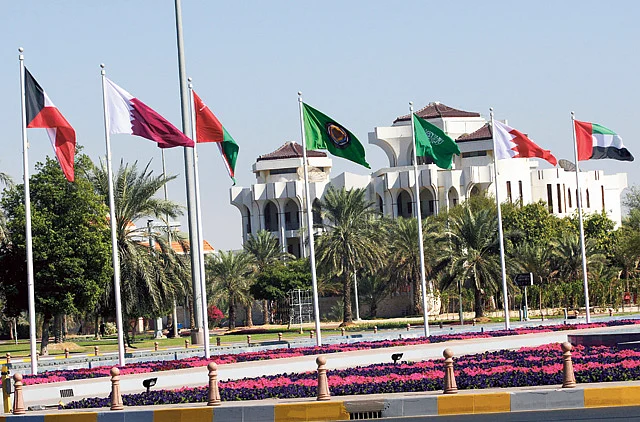Bloc yet to define a vision for itself
After 30 years the GCC must clarify what it stands for

Dubai: Twenty nine years after the Gulf Cooperation Council was formed, it has yet to achieve some of its primary stated objectives.
The GCC was formed in 1981 while war raged between neighbouring Iraq and Iran as a show of unity among the six Arab states of the Gulf.
Analysts have said that the bloc was formed hastily and without much consultation on what its true purpose was.
"There was a big threat coming from Iran and they all wanted to bunch up together," said Dr Abdul Khaleq Abdullah, political science professor at UAE University.
The grouping was "born ambiguous" and remains so today, he said. "Some wanted a purely economic integration — Kuwait, some wanted it to be exclusively security [oriented] — Oman, some wanted a loose political integration — Saudi Arabia, and some didn't know what it was all about".
Its charter, formulated at its founding, details the role of the bloc's various bodies, but only defines the objective of the grouping superficially, with repeated references to "cooperation".
GCC officials are quick to reject comparisons made between the bloc and the European Union, saying the difficulties faced in the decision making process of the 27-member grouping is a lesson.
Instead they look to looser, more economically oriented groupings such as the Association of Southeast Asian Nations (Asean). Abdullah said integration was a difficult and lengthy process, but the GCC should have achieved more in the period since it was established.
"There is no other grouping of countries that are so similar in their history, and economic, social and cultural backgrounds like the GCC," added Abdullah. "Despite that, what has been achieved in 30 years is probably below expectations," he said.
The GCC is yet to agree on final border demarcations among its members and achieve some of its primary objectives such as the establishment of a monetary union, a rail link, and closer defence cooperation.
A much publicised territorial dispute between Bahrain and Qatar was settled at the International Court of Justice in 2001, and a territorial dispute between Saudi Arabia and the UAE that resurfaced recently, is yet to be resolved.
Conflict resolution
"The GCC charter [mentions] a conflict resolution committee. This committee hasn't even been formed. It is non-existent. The committee could have solved the territorial disputes," said Abdullah Shayji, head of the political science department at Kuwait University. "That's part of the ongoing saga of mistrust that is not providing a healthy [platform] for us to air our disputes".
While the major issues such as free trade agreements, the monetary union and the GCC rail link, are often criticised for progressing slowly, a host of other, less visible areas, have seen significant integration including telecommunications, data collection, agriculture, research, culture, movement and education.
Egos, an attachment to sovereignty by the rulers of the member states, and a fear of dominance by the biggest state in the grouping are often cited as hurdles to further integration.
Abdullah of UAE University said it was not uncommon to have a regional heavyweight, a "big brother", in integrationist groupings, citing to the status of Germany in the EU, but said that the role came with an added responsibility to dispel fears of domination.
"The Saudis sometimes play it rough," said Abdullah, adding that the Kingdom needed to "tone down its dominance" over the Gulf.
There is a tendency in the GCC, said Shayji, to shift towards less contentious issues such as economic integration "but we're even failing there".
Both Oman and the UAE have withdrawn from the monetary union, and the customs union, launched in 2003, is yet to be implemented amid reported differences among members.
Despite all of the GCC's shortcomings, say Shayji and Abdullah, it remains among the Arab world's biggest successes. "Perhaps that shows you the miserable state of the Arab world," said Shayji. Abdullah has no doubt that the GCC will continue to become closer and integrate further in the years to come, even if slowly.
"The investment that has been put into the GCC is enormous and everyone recognises its strategic value". He added, however, that "the time has come to clarify exactly what the GCC is".
Sign up for the Daily Briefing
Get the latest news and updates straight to your inbox
Network Links
GN StoreDownload our app
© Al Nisr Publishing LLC 2026. All rights reserved.